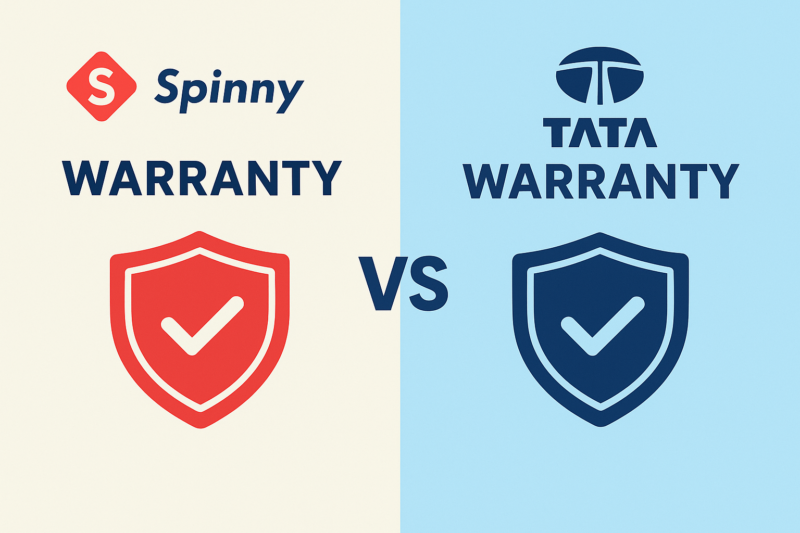Applying for a car loan is a significant financial decision that requires careful consideration and planning. From understanding the various types of loans available to assessing your own financial situation and comparing different interest rates, working out the car loan application process can seem quite daunting. So, with a clear mindset armed with the right knowledge and resources, it can turn out to be a straightforward and rewarding experience. Whether you’re dreaming of a luxury sedan or a rugged SUV, this article will ensure you take the right steps in purchasing your dream vehicle.
Step 1: Choose A Car Loan Provider
Choosing the correct car loan provider is a significant step in the process of financing your vehicle. Here are some of the key factors you ought to consider when you are selecting a car loan provider:
- Interest Rates – Compare interest rates offered by different lenders. Lower interest rates can significantly reduce the overall cost of your loan. Look for competitive rates that will fit within your budget.
- Loan Terms – Review the loan terms offered by each provider. This includes the length of the loan (term), repayment schedule, and any flexibility in payment options. Make sure to choose a provider that offers terms that align with your financial goals and ability to repay the loan.
- Fees and Charges – Be aware of any additional fees or charges associated with the loan, such as prepayment penalties, or late payment fees. These can add up and affect the total cost of borrowing.
- Customer Service – Consider the level of customer service provided by each of these lenders. Look for a lender with a reputation for excellent customer service, easy communication channels, and responsiveness to inquiries or concerns.
- Financial Stability – Finally, consider the financial stability and longevity of the lender. Opt for a reputable institution with a strong financial standing and a history of stability and reliability in the lending industry.
![]()
By carefully considering these above factors from different loan providers, you can make an informed decision and choose the provider that best meets your needs and preferences.
Step 2: Check Car Loan Eligibility
Checking your eligibility for a car loan is an important step in this process. You can follow these steps below to ensure you are eligible for a car loan:
- Check your credit score – Start by checking your credit score from major credit bureaus. Your credit score is a crucial factor that lenders use to assess your creditworthiness. Aim for a score in the good to excellent range for better loan terms.
- Assess your financial situation – Evaluate your income, expenses, and existing debt obligations. Lenders typically consider factors like your debt-to-income ratio (DTI) when determining loan eligibility. Aim to keep your DTI within the lenders acceptable range.
- Use Online Loan Calculators – Many banks and financial institutions offer online loan calculators that can estimate your loan eligibility based on your income, expenses, credit score, and desired loan amount. While these tools provide estimates, they can give you an idea of whether you are likely to qualify for a loan.
- Gather Required Documents – Before applying for a car loan, gather necessary documents such as proof of income, employment verification, identification (driver’s licence, passport), and any other relevant financial documents. Keeping these documents ready will streamline the application process.
Step 3: Select Your Desired Loan Amount and Tenure
Selecting the desired loan amount and tenure for your car loan requires careful consideration of your financial situation, budget and repayment ability. Here is how you can make an informed decision:
- Assess your budget – Start by evaluating your monthly income and expenses. Determine how much you can comfortably allocate towards car loan payments each month without straining your finances.
- Calculate Affordability – Use an online loan affordability calculator to estimate the maximum loan amount you can afford based on your monthly income, expenses and desired loan tenure.
- Evaluate Loan Tenure Options – Consider different loan tenure options available. Shorter loan tenures typically come with higher monthly payments but lower overall interest costs, while longer loan tenures result in lower monthly payments but higher total interest expenses.
- Consider Down Payment – You can choose whether you’ll make a down payment towards the purchase of your vehicle. A higher down payment reduces the loan amount required and can result in lower monthly payments and overall interest costs. Aim to make a down payment that aligns with your budget and financial goals.
- Factor in Interest Rates – Take into account the prevailing interest rates offered by lenders. Higher interest rates increase the cost of borrowing, while lower rates can make loan payments more affordable. Compare interest rates from multiple lenders to find the most competitive offer that fits your budget.
- Review Loan Terms and Conditions – Read and understand the terms and conditions associated with each loan option. Pay attention to factors such as fixed or variable interest rates, prepayment penalties, late payment fees, and any other charges or restrictions that may apply. Choose a loan that aligns with your financial preferences and goals.
![]()
Step 4: Complete Car Loan Documentation
Car Loan Documentation involves various forms and paperwork required by the lender to process and approve the loan. Here are some of the documents you may need when applying for a car loan:
- Identification Documents – These will include a valid driver’s licence, passport, or other government-issued identification.
- Proof of Income – Lenders want to ensure that you have the financial means to repay the loan. Documents such as payslips, tax returns, and bank statements may be required.
- Proof of Employment – This can be in the form of employment verification letters or recent payslips showing your current employment status and income.
- Vehicle Information – Acquire the details of the car model you intend to purchase, such as the make, model, year, VIN (Vehicle Identification Number), and purchase price.
- Proof of Insurance – Most lenders require comprehensive and collision insurance coverage for the vehicle. You need to provide an insurance binder or policy information.
- Loan Application – This form provides the lender with information about you, your financial situation, and the loan terms you are requesting.
![]()
Final Step: Purchase Your Car
Purchasing your car in India includes some vital processes such as loan approval, loan disbursement, down payment and hypothecation documentation. In the new age, car loan applications are processed almost instantly. Here, we take a look at the processes involved while purchasing your dream car.
- Loan Approval: The bank will start by verifying your documents and checking your credit score and eligibility for the loan. Banks will instantly approve loans these days if you are eligible.
- Loan Disbursement: Once your loan application is approved, the loan amount is disbursed to the applicant’s account within seconds. You can purchase your car as soon as the funds are transferred into your account.
- Down Payment: Make sure you pay the higher down payment, you can lower the principal loan component. It will further help you pay a lower interest amount and your monthly instalments will also reduce.
- Hypothecation Documents: It is the process wherein you pledge the ownership of your vehicle to your lender. Once you take the vehicle loan, a hypothecation request is submitted to the RTO with the loan details. You would need documents such as the original RC, car insurance documents, Form 34, proof of address and attested copy of the PAN card for the hypothecation process.
By following these mentioned steps and staying on top of your loan payments and vehicle maintenance, you can enjoy your newly purchased car while effectively managing your car loan.
Summary
Applying for a car loan in India involves several key steps, as seen in this article. Firstly, you need to assess your current financial situation, including your credit score and budget, to determine how much you can afford and borrow. Research various lenders, such as banks, non-banking financial companies and online platforms, to compare interest rates, loan terms, and eligibility criteria.
Gather necessary documentation, including identification, proof of income, address proof, and vehicle details. Pre-qualify for a loan to understand your borrowing capacity and potential interest rates. Complete the loan application process with your chosen lender, providing all necessary information and documents. Once the loan is approved, purchase the vehicle, and fulfil any registration and insurance requirements. By following these steps, individuals in India can successfully apply for a car loan and finance their vehicle purchase efficiently.
FAQs About Car Loan Application
What are the eligibility criteria for a car loan?
Eligibility criteria vary among lenders but typically include factors such as age, income, employment stability, credit score, and residential status. Go through the list of eligibility requirements mentioned by your chosen lender before starting the car loan application process.
What documents are required for a car loan application?
Common documents include ID proof, address proof, income proof (salary slips, bank statements), employment proof, photographs, and details of the vehicle you have chosen to purchase.
What collateral do I need to take a car loan?
A car loan is granted to an individual interested in buying a car. A car loan is a secured loan where the car you buy acts as a collateral. Therefore, there is no additional collateral requirement for a car loan. However, you do have to get the RC (registration certificate) of the car endorsed with the bank.
What maximum loan amount I can avail through a car loan?
The maximum loan amount approved may vary from one bank to another. Usually, banks approve loan amounts that range from 80%-90% of the on-road price of the car. Most of the lending institutions even offer financing of up to 100% of the car’s ex-showroom price. In addition to these criteria, the percentage of financing offered also depends on certain other factors such as the price of the car and type of car, i.e. new or used car.
What is the tenure for car loans?
The tenure of a car loan ranges from 1 to 5 years, or it can go up to a maximum of 7 years. The shorter the loan tenure, the higher is the EMI payable, and the longer the tenure, the shorter your EMIs will be along with the additional rate of interest.
What is the minimum salary required to apply for a car loan?
Generally, most of the lenders do not specify a minimum salary requirement, your loan application may be rejected if you do not meet the salary eligibility criteria as required by the bank. In such cases, applying with a co-borrower or co-applicant might be a better choice to boost your chances of car loan approval.




